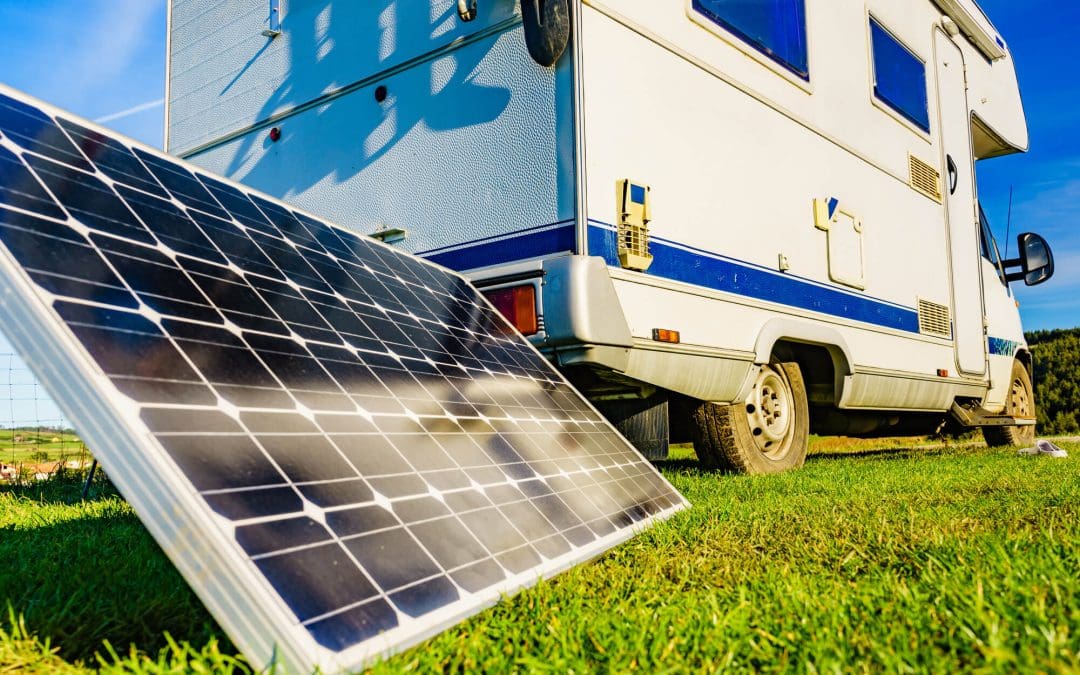Off-grid travel in an RV offers a unique sense of freedom, allowing adventurers to escape the confines of traditional campsites and explore remote destinations. However, when disconnected from the grid, ensuring a continuous power supply can be challenging. Effective RV power management becomes crucial for a smooth and enjoyable off-grid experience. Here are some essential tips to help you maximize RV power during off-grid travels.
1. Understand Your Needs for RV Power Management
Before starting your off-grid journey, take stock of your power requirements. Consider the appliances and devices you’ll be using regularly, such as lights, the refrigerator, the water pump, entertainment systems, and electronic gadgets. Understanding your power needs will help you determine the size and capacity of your off-grid power system.
2. Invest in Solar Power
Solar panels are a game-changer for off-grid RV travelers. Installing solar panels on your RV’s roof allows you to harness the sun’s energy and convert it into electricity to power your appliances and charge your batteries. Invest in high-quality solar panels and a reliable solar charge controller to optimize energy production and storage.
3. Optimize Battery Storage for Proper RV Power Management
A robust battery bank is essential for storing solar energy and ensuring a continuous power supply, especially during periods of low sunlight. Invest in deep-cycle batteries specifically designed for RV use, such as lithium-ion or AGM batteries, which offer higher energy density and longer lifespan compared to traditional lead-acid batteries. Proper battery maintenance, including regular charging and avoiding deep discharges, maximizes battery life.
4. Use Energy-Efficient Appliances
Choose energy-efficient appliances and devices for your RV to minimize power consumption. LED lights, efficient refrigerators, and low-power electronics significantly reduce your energy demands, stretching your battery life further. Upgrade to energy-efficient appliances when replacing older, less efficient models.
5. Practice Energy Conservation
Adopting energy-saving habits can go a long way in conserving power during off-grid travel. Turn off lights and appliances when not in use, limit unnecessary use of high-power devices, and avoid running multiple energy-intensive appliances simultaneously. Simple practices like these can help you maximize your available power supply.
6. Monitor Power Usage
Keep track of your power consumption and battery levels to avoid unexpected power shortages. Use a battery monitor or energy management system to monitor voltage, current, and battery state of charge in real-time. Understanding your power usage patterns allows you to adjust your habits and optimize energy usage.
7. Have Backup Power Sources
While solar power is a reliable off-grid energy source, having backup power options is essential for unforeseen circumstances. Consider carrying a portable generator or backup battery pack as an emergency power source to supplement your solar system during extended periods of low sunlight.
8. RV Power Management: Prioritize Charging
Prioritize charging essential devices and batteries during periods of ample sunlight to take full advantage of your solar power system. Charge electronic gadgets, camera batteries, and other devices during the day to minimize reliance on battery power during the night when solar energy production is unavailable.
9. Plan Your Itinerary Wisely
Strategic planning can help you optimize your off-grid power usage. Choose campsites with ample sunlight exposure for optimal solar energy production, and plan your activities accordingly. Adjust your travel schedule to maximize your time in sunny locations and minimize energy consumption on overcast days.
10. Seek Professional Advice on RV Power Management
If you’re new to off-grid RV travel or unsure about optimizing your power system, don’t hesitate to seek advice from professionals or experienced RVers. Consult with solar power experts and join online forums dedicated to RVing to gain valuable insights and tips for maximizing your off-grid power experience.
By implementing these power management tips, you can enjoy extended off-grid adventures in your RV without worrying about running out of power. With careful planning, energy-efficient practices, and the right equipment, you can embrace the freedom of off-grid travel while staying comfortably powered wherever your adventures take you.
Power Management FAQ
How do I manage power when boondocking (camping without hookups)?
When boondocking, conserve power by using LED lighting, limiting the use of high-power appliances, relying on propane for cooking/heating, and considering portable power solutions like battery packs or portable solar panels.
How do I know if my RV’s electrical system is overloaded?
Signs of an overloaded electrical system include tripped circuit breakers, flickering lights, appliances not functioning correctly, and unusual odors coming from electrical components.
What should I do if I encounter electrical issues in my RV?
If you experience electrical problems, disconnect from shore power or turn off the generator to prevent further damage. Then, check circuit breakers, fuses, and connections for any issues. If problems persist, consult a qualified RV technician for assistance.
What safety precautions should I take with RV power management?
Always follow manufacturer guidelines, inspect electrical components regularly for signs of wear or damage, use surge protectors, and ensure proper ventilation for appliances like generators.
USRV Inspector provides professional RV inspection services to RV owners and sellers across the United States. Contact us to schedule an appointment.

